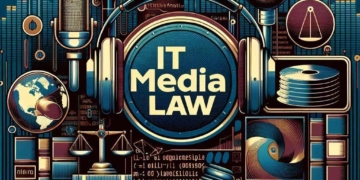Software escrow contracts are an essential tool for IT start-ups, software developers and web designers to create trust and security in business relationships. They protect both providers and customers from the risks associated with dependence on critical software solutions. Especially in the dynamic world of IT, where startups often work with limited resources and high pressure to innovate, escrow agreements can be crucial to secure investments and enable long-term partnerships.
An escrow agreement offers clear advantages for both sides: For the software provider, it means the opportunity to build trust with potential customers without losing control of the intellectual property. For the customer, it ensures that the software can continue to be used and maintained even in the event of the provider’s insolvency or support failure.
In this article, I explain what a software escrow agreement is, why it is particularly useful for IT companies and what basic provisions it should contain. Practical examples show how escrow solutions can be used specifically in the IT sector – whether for SaaS solutions, individual software development or web design projects.
What is a software escrow agreement?
A software escrow agreement is a fiduciary agreement between a software provider (e.g. developer or SaaS provider), a customer (e.g. company or user) and an independent escrow agent. The provider deposits the source code or other critical data with the agent. The agent only releases the deposited information to the customer if certain contractually agreed events occur – such as the insolvency of the provider or the discontinuation of support.
For IT start-ups, such a contract offers an opportunity to gain the trust of potential customers without jeopardizing their intellectual property rights. Customers, in turn, can ensure that they have access to business-critical software even in the worst-case scenario.
Why are escrow agreements useful for IT start-ups and developers?**
Escrow agreements are particularly relevant in the IT sector, as there are often complex dependencies between providers and users. They are particularly useful for the following scenarios:
1. SaaS providers: If a startup offers a cloud-based application, an escrow agreement can ensure that customers continue to have access to the software and their data if the provider goes out of business.
2. Web designers and agencies: When developing custom web solutions, escrow agreements can help boost customer confidence by guaranteeing that the source code remains available in case of an emergency.
3. Software developers: Startups or freelancers can protect their intellectual property rights while ensuring that customers do not lose confidence.
Practical examples of the use of escrow agreements
SaaS startup: securing business-critical applications
A SaaS startup offers a project management platform for small companies. A major customer wants to use the platform, but has concerns about the long-term availability of the software – especially as the startup is still young and does not have an extensive company history.
Solution:
The startup concludes an escrow agreement with the customer. The platform’s source code and technical documentation are deposited with an escrow agent. In the event of the startup’s insolvency, the customer receives access to these resources and can continue to operate the platform independently.
Advantage:
The customer feels secure and decides to conclude a contract with the startup. At the same time, the startup’s intellectual property remains protected.
Web design agency: Protection of individual solutions
A web design agency develops customized e-commerce websites for its customers. However, one customer is concerned that he will not have access to the source code of his website if the agency goes down.
Solution:
The agency offers to store the source code and all relevant assets (e.g. plugins or design files) in an escrow system. The contract precisely regulates the conditions under which this data is released – for example, in the event of the agency’s insolvency or non-fulfilment of maintenance contracts.
Benefit:
The customer receives security of access to their website data in an emergency, while the agency strengthens its business relationship and secures future projects.
Startup with customized software: protection against dependencies
A small startup develops specialized accounting software for a medium-sized customer. As the software was customized, there is a high risk for the customer if the startup were to cease operations.
Solution:
The source code and detailed technical documentation are deposited with an escrow agent. The contract stipulates that this information is released if the startup becomes insolvent or can no longer provide the agreed support services.
Advantage:
The customer feels secure and invests in the start-up’s solution – a win-win situation for both sides.
Basic provisions of a software escrow agreement
A professional escrow agreement should clearly regulate the following points:
1. definition of release conditions
– insolvency of the provider.
– non-fulfilment of contractual obligations (e.g. support).
– discontinuation of operation by the provider.
2. scope of the stored data
– Source code.
– Technical documentation.
– Access data to servers or APIs (for SaaS).
3. rights and obligations of the escrow agent
– Ensuring confidentiality.
– Checking the stored data for completeness.
– Timely release in the event of a release case.
4 Liability and cost allocation
– Clear regulation of the agent’s liability.
– Determination of the assumption of costs (usually by the customer).
Conclusion: Why escrow agreements are indispensable for IT companies
For IT start-ups, software developers and web designers, escrow agreements offer an opportunity to build trust and secure investments – without jeopardizing their own intellectual property. They create security in an industry that is characterized by innovation and rapid change.
Whether SaaS provider or freelancer: a well-thought-out escrow agreement can not only minimize legal risks, but also open up new business opportunities – whether through larger customer projects or long-term partnerships.
If you need support in drawing up an individual escrow agreement or have questions about implementation, I will be happy to assist you!













































